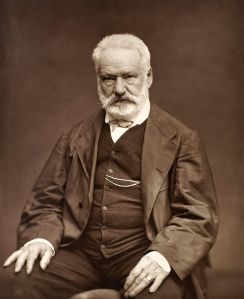
One thing I love about Alaska is the pioneering spirit of independence evident in so many people here. “Do it yourself” is just a way of life for many Alaskans.
But I’m afraid this mindset, as admirable as it is, doesn’t carry over very well to a Christian’s relationship to the church. Many Christians here in Alaska (and throughout the nation) have left traditional churches in favor of forming loosely-organized groups of people who fellowship and worship together at someone’s house. These “home churches” are a kind of “do-it-yourself” or “homemade” church: no formal organization or structure, and no ties to established ecclesiastical bodies.
(To be clear, by “home church” I don’t mean any church that happens to meet in someone’s house. Rather, I am speaking of groups of Christians who meet regularly but are not part of any established, traditional church).
I have some concerns about these home churches.
I’ve been a pastor in Wasilla, Alaska, for about seven years, and our congregation has seen people leave to join home churches. Admittedly, for this reason alone, I am open to the charge of self-interest in expressing my concerns. After all, I’m the pastor of an established church, and I have a definite interest in convincing others of the value of committing to a local, organized church. I confess my bias, but I also believe that a careful consideration of biblical teaching will bear out my concerns.
If you are part of a home church, I’m not saying this means you aren’t a true Christian. My aim is not to impugn the faith, sincerity, or character of those who have chosen home church over traditional churches. I trust that the believers I know who are involved with home churches are in fact true Christians.
At the same time, I believe they are Christians who are making a mistake.
Here are my concerns:
First, home churches fail to conform to the New Testament description of churches.
We sometimes get the impression that the first Christians enjoyed a sort of pure fellowship, blissfully free from the suffocating structure of the institutionalized church. The only rule that governed them was the rule of love.
And to be sure, the book of Acts does describe a wonderful Spirit-wrought harmony and joyful fellowship among the initial converts to Christ (Acts 2:42-47). It’s hard to picture them at a congregational meeting, debating among themselves the finer points of Robert’s Rules of Order.
At the same time, the New Testament shows in many ways how the Lord gave to the early church a definite order and organization. Presbyterians, Baptists, Episcopalians and other structured church bodies may disagree on the fundamental shape of that order. However, all would agree that in the early church, there was in fact an organized system of church government.
First, the church had an appointed and acknowledged leadership. The ascended Jesus gave leaders to the church: apostles, prophets, evangelists, and pastors and teachers (Eph. 4:11). Paul told Titus – as part of his assignment to “put what remained into order” – to “appoint elders in every town” (Titus 1:5). In Acts 6:1-7, in a very orderly fashion, men were chosen and appointed to assist with distributing food to widows in the church (in my view, the first deacons). And when Paul greeted the Philippians, he included the “overseers and deacons” serving there (Phil. 1:1).
Surely if the Lord Jesus Christ considered ordained leadership to be incidental to the health and well-being of his people, or merely an optional accessory to the church, he would not have provided for them in every New Testament congregation (Acts 14:23; Titus 1:5).
The first Christians were commanded to “obey your leaders and submit to them” (Heb. 13:17), and to “respect those who labor among you and are over you in the Lord and admonish you” (1 Thess. 5:12). What these commands presuppose is that in some way beyond mere common consent or unspoken agreement, certain men were set apart and acknowledged as church leaders.
Also, the worship of the church necessitated some degree of order and structure. Who would teach and preach? Who would decide who would be baptized, and who would do the baptizing? How was the Lord’s Supper to be administered? And to whom? Certainly informal agreement was not sufficient for handling these matters. If worship was to be done “decently and in order,” then some formal organization had to exist to maintain that order (1 Cor. 14:40).
Next, the Bible’s several provisions (Matt. 18:15-20; 1 Cor. 5:12, 13; 6:4; Titus 3:10) for church discipline assume a structure of authority in the church. And they require some provisions for due process. It’s impossible to conceive how church discipline can be carried out fairly and consistently in the absence of recognized leadership, without church membership, and without some rules ensuring a just proceeding.
In the book of Acts, the Holy Spirit who in spectacular fashion brought mass conversions to Christ, also, in a less dramatic but no less significant work, brought organization to the church. In chapter 15, when there was a sharp disagreement among believers concerning circumcision, the “apostles and elders” (v.22) held a council in Jerusalem to adjudicate the matter. Their decision was binding on all the churches. Again, we see the presence and activity of acknowledged authorities and discernible structure in the church (the presbyterian in me is sure that at this council they appointed a “Circumcision Study Committee” to guide them!).
So the churches in the New Testament had a definite structure, a structure given by Christ himself (Eph. 4:11, 12).
On the other hand, by their very nature, home churches lack ordained leadership and formal organization. Although the early church had elders and deacons, home churches have no provisions for ordaining such. The organization and structure necessary for faithful church discipline is lacking. In this way, home churches fall short of the biblical norm for Christian congregations.
Now I don’t deny that Christians may be blessed by the fellowship they enjoy in a home church, and they may love the people in their group, and they may receive edifying teaching. But the question must be asked: if the structure of New Testament churches is normative, and if that structure included officers and provisions for church discipline, then if we are not involved in churches that seek to mirror, in some meaningful way, New Testament churches, are we being as faithful as we should when it comes to our relationship to the Body of Christ?
If you are in a home church, let me ask more pointedly: who are the church leaders whom you are called to obey (I Thess. 5:12; Heb. 13:17)? Were they made leaders by others, or were they self-appointed? If they wished to exercise church discipline with you, is their authority one you have formally submitted to? If they were being unfair, how would you appeal?
My second concern is that home churches are more vulnerable to poor, or even abusive, leadership.
As we are sadly reminded on a regular basis by the news, leadership failures can plague any church of any kind. I readily acknowledge this. No church structure can guarantee the full protection of God’s flock from leaders who are incompetent shepherds, or worse, hurtful to sheep.
Who leads, and what makes a qualified leader, is manifestly a matter of great importance to Christ. In both 1 Timothy and Titus, Paul lays down certain qualifications for elders (1 Tim. 3:1-7; Titus 1:5-9). Peter, knowing the inherent danger of heavy-handed leadership in the church, warns elders not to domineer over those in their charge, but to be examples to the flock (1 Peter 5:1-4). In fact, we even see in the Bible a certain circumspection regarding church leadership. James 3:1 says “not many of you should become teachers,” and 1 Timothy 5:22 warns “Do not be hasty in the laying on of hands.”
Given the New Testament’s caution and concern regarding church leadership, the character of men who are to lead, and the manner in which they are to lead, a church must take great care in how it selects, trains, and tests her potential leaders. But is this possible without some formal process in place?
What’s more, in a formal church structure, there are (or should be) a mechanism in place that ensures some accountability for leaders. I know that is the case in presbyterian churches. I am accountable to my elders and my presbytery. If a church member has a complaint about the leadership, he will be heard. He may even bring it to the presbytery if he believes the elders have not fairly handled his complaint (and if still not satisfied, he can appeal all the way to the General Assembly!).
This provision of accountability is a biblical principle, not the invention of Spirit-quenching church bureaucrats. Paul gives explicit directions on how charges against elders are to be handled (1 Tim. 5:19).
Underlying these formal constraints against poor or abusive leadership is the biblical understanding of human sin. Even otherwise godly men may overstep their bounds once in a position of authority, or they may have certain flaws that render them unfit for leadership.
My concern is that in an informal home church that lacks accepted provisions governing leadership and any formal accountability for leaders, the possibility is increased of the wrong people becoming leaders. Leaders may emerge based on the strength of their personality or charisma, or based on their knowledge of Scripture or ability to teach. They may be natural leaders but they may not possess the biblical qualifications, or even the character, to lead in a way that is humble and not self-seeking.
My third concern is that home churches may rob believers of the resources of the broader church.
Most likely, a home church will not enjoy the services of a trained pastor and preacher. Again, at the risk of sounding self-serving, it seems to me that Christians will be better off sitting under the teaching of a man who has spent time studying the Scriptures, theology, and the work of ministry, and whose overall fitness for pastoral work has first been tested by others. I don’t want to sound like a clerical snob; I know all too well my own shortcomings as a pastor and teacher. And I admit that there are men who may be more gifted and better than I at preaching and teaching, but who’ve never had an opportunity for theological study or ministerial training. But on the balance, surely churches that have the structures and means to produce a learned and trained ministry will receive better teaching than those that don’t.
In traditional churches such as ours, elders and deacons are also trained and tested. Again, this doesn’t make our church perfect – not by a long shot. But the point of all this is that traditional churches have far more resources available to them for the raising up of qualified leaders and servants in the church.
Furthermore, a home church, because it is by definition unaffiliated with any one ecclesiastical body, and because it does not have a formal commitment to any particular body of doctrine, will not benefit from a developed and time-tested confession of faith or system of Christian theology to ground its teaching and worship.
Both a trained clergy and a shared body of doctrine (such as a confession of faith) will help prevent what may be a particular vulnerability with a home church. That is, a teacher who focuses primarily on his own personal interests or passions. Indeed, a home church will probably tend to attract very like-minded people to its fellowship, thus only magnifying the potential of a teaching ministry that dwells inordinately on a few choice issues. Unless I am mistaken, for these reasons it seems less likely that in a home church, especially in the long run, a believer will hear the “whole counsel of God” (Acts 20:27), and be exposed to a faithful ministry of systematic, Christ-centered, Scriptural exposition.
My fourth concern is that home churches may offer a narrow vision of the Kingdom of God.
Because home churches lack ties with larger ecclesiastical bodies, it seems inevitable they will struggle to maintain and communicate a vision for the Kingdom of God that is broader than the personal concerns and ties of the people in the home church. What may develop is a kind of spiritual myopia, in which the work of Christ beyond the small orbit of the home church gradually fades from view.
Although the church I serve is a small church, since we belong to a larger denomination, we have a stake in its various ministries at home and abroad. We pray for missionaries throughout the world, and for other churches in our denomination. We’ve had speakers visit from other places who are engaged in different types of ministries, including church historians, biblical scholars, Christian authors, missionary workers, pastors, and others. They’ve broadened our horizons.
As for home churches, without that broader vision of Christ’s church, I wonder, will their children grow up with an interest in devoting their lives to some form of full-time service in the greater church? Or will they view the work of missions, pastoring churches, theological instruction, etc., as concerns alien to them, having received the impression through home church that such work is done by others in traditional churches? Of course I could be wrong about this, but it would be a shame if home churches inadvertently kept talented and gifted young Christians from devoting their lives to full-time Christian service in the broader church.
As well as the danger of this sort of spiritual nearsightedness, a home church may also be prone to a similar shortsightedness. Will the home church be the same home church for their children, and for their children’s children, and for their children’s children, and so on? A home church arrangement may serve well in the present circumstances of the families involved, but without some formal structure that survives the present, I don’t see how a home church can continue down through the generations. For all the problems of church tradition divorced from a living faith, tradition (including forms of worship, a codified body of doctrine, and provisions for church government), when it works, is a wonderful mechanism for enabling future generations to inherit the “faith of our fathers.” Paul certainly looked far beyond his own time when he commanded Timothy to take the teaching he heard from him and “entrust [it] to faithful men who will be able to teach others also” (2 Tim. 2:2).
Conclusion
I’ll admit that programs, committees, bureaucracies, and other such creatures of institutional churches can have a suffocating effect for Christians who long for the pure joy of fellowship and worship with others. A home church holds out the prospect of undiluted Christian fellowship, free from the institutional constraints of traditional church. That is an attractive promise.
But structure and organization need not be the enemy of true fellowship and joyful worship in the Body of Christ. Ideally, in fact, they facilitate these things. Like a well-built aqueduct system, proper church structure and organization are stable channels through which God’s grace freely flows to bless his people. Neither is church authority necessarily oppressive and antithetical to Christian freedom. When leaders are faithful to Christ, their authority is nothing more than a ministry of the lordship of Christ, obedience to whose will is the very key to true freedom and liberty.
Let’s remember God is a God of order. “God is not a God of confusion” (1 Cor. 14:33). The creation reflects his concern for order. God gave order to marriage and the family. The Old Testament people of God lived under a divinely-given and highly-structured system of laws governing all aspects of their lives. The New Testament church possessed a definite order of government.
If God is the author of order, even of the order of institutional structure, then by what wisdom would we seek to establish a separate Christian community that effectually rejects the structure and order of every existing church in the community? Why do that, especially when there are churches nearby that are faithful to Christ, proclaiming the gospel and ministering the Word of God? Why not unite with such a congregation, rather than forming a home church that is arguably, in essence, a new and separate denomination? Is this not a further severing of the already tragically splintered Body of Christ?
One final observation. It’s safe to say Christians in home churches are virtually all Protestants. And from what I understand, some in home churches are even sympathetic to historic Reformed theology. But the rejection of the institutional church per se is an idea that was anathema to the original Protestants, especially the Reformed. With that in mind, let’s give John Calvin the last word:
[It is]… the church, into whose bosom God is pleased to gather his sons, not only that they may be nourished by her help and ministry as long as they are infants an children, but also that they may be guided by her motherly care until they mature and at last reach the goal faith. “For what God has joined together, it is not lawful to put asunder” [Mark 10:9], so that, for those to whom he is Father the church may also be Mother.
My concern is that a home church just isn’t the quite the same as the church as it has been understood historically, by Calvin and others; and more importantly, a home church is not quite the same as the church that was founded by Christ.
Photo Credit: Tony Shertila via Compfight cc









